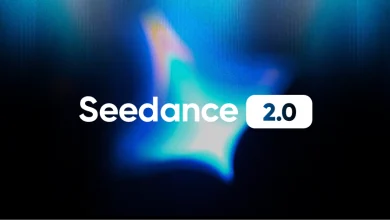
Marketing has always revolved around storytelling, compelling, emotional, and persuasive narratives that move audiences to act. But the content creation space is undergoing a revolution, led by artificial intelligence. AI-powered writing tools are not just assisting content creators; they are now competing with them. From drafting blog posts to composing emails and product descriptions, machines are increasingly writing the words we read online. But can AI truly outperform human writers when it comes to creativity, relatability, and strategy? This article explores the growing rivalry between AI tools and human marketers, analyzing strengths, weaknesses, and how the future of content might look.
What Is AI-Powered Content Creation and How Does It Work?
AI writing tools generate content using natural language processing (NLP), a subset of artificial intelligence that enables machines to understand, interpret, and mimic human language. These tools have evolved from simple spell checkers into systems that can produce full articles, marketing copy, and even creative narratives.
How Does AI Learn to Write?
AI models like GPT-4 are trained on large datasets from books, websites, news articles, and more. They break down language into tokens, predict what comes next, and form coherent sentences. This allows them to write with surprising fluency and adapt to various tones and styles.
Key AI Writing Tools Leading the Market
- ChatGPT – Versatile for long-form and conversational content
- Jasper – Built for marketers, great at persuasive writing
- Copy.ai – Useful for quick, catchy copy like social posts
- Writesonic – Known for SEO-friendly content creation
Comparing Human Creativity with Machine Precision
While AI thrives in consistency and speed, it often lacks the emotional depth that defines impactful writing. Human writers bring empathy, intuition, and lived experiences that machines can only imitate, not genuinely understand.
Natural Language Processing vs Human Emotion
Machines can structure content well and follow tone guidelines, but they miss out on humor, sarcasm, cultural nuance, and genuine emotion traits that human writers naturally include in storytelling.
Emotional Intelligence and Tone in Writing
Tone builds trust, and empathy drives engagement. AI may mimic tone, but without true emotional intelligence, its writing often feels flat. Only a human can understand how to adjust messaging for sensitive topics, or tailor a story to connect deeply with the reader.
The Pros and Cons of AI in Content Writing
AI offers undeniable advantages for marketers under pressure to deliver more content faster, but it’s not without limitations.
Advantages of AI Writers
- Scalable and fast content production
- Available 24/7
- Cost-effective in the long run
- Can personalize based on data insights
Disadvantages of AI Writers
- Lacks originality and emotional nuance
- Risk of producing generic or repetitive content
- Requires human review for context and tone
- Legal and ethical concerns (e.g., plagiarism, disclosure)
How Human Writers Still Lead in Quality and Brand Storytelling
Human writers excel where it matters most creating emotional resonance, understanding cultural context, and building brand voices that stick. Think Wendy’s on Twitter or Mailchimp’s quirky tone that comes from humans, not code.
Personal Branding and Voice
AI can support brand consistency, but it can’t create a unique voice. This human touch is especially important for a dropshipping business, where building trust in a crowded market depends on authentic storytelling and a relatable brand voice. Brands that resonate have personalities shaped by people, not platforms.
Empathy in Content: The Human Edge
Storytelling is powerful because it draws from memory, emotion, and real-world experiences. This is something only human writers bring to the table AI can only simulate, not feel.
Real-World Applications of AI in Marketing Workflows
AI writing tools are already integrated into many marketing stacks, from email automation to social media scheduling. The key is using AI for efficiency, while retaining human input for creativity and strategy.
Where AI Shines in the Content Funnel
- Top-of-Funnel Content: Blog posts, SEO snippets, and FAQs
- Drafting and Brainstorming: Speeding up ideation and first drafts
- Email Campaigns: Software like Mailchimp auto-generate subject lines and personalize messages
- Social Media Posts: AI can suggest hashtags and write short updates quickly
Integrating AI Tools with Marketing Platforms
AI tools like Jasper, ChatGPT, and Writesonic now integrate with CMS platforms like WordPress and HubSpot, enabling seamless publishing and workflow optimization.
AI vs Human: What Do the Metrics Say?
AI-generated content often performs well on SEO benchmarks like keyword use and readability. However, human-edited content usually earns better engagement and conversions. These trends don’t just affect marketing—they echo across digital media, journalism, and latest entertainment stories, showing how AI is reshaping content creation in all corners of pop culture.
SEO Performance and Rankings
AI tools optimize for search engines using best practices in keyword placement, meta descriptions, and headers. But search engines now reward E-E-A-T experience, expertise, authoritativeness, and trustworthiness, which is harder for AI to fake.
Engagement: Time-on-Page and Shares
Human-written content tends to keep readers longer and receives more shares when it contains humor, personal stories, or insights. AI content often needs a human polish to avoid bounce and disengagement.
Ethics, Plagiarism, and Legal Questions Around AI Content
Using AI in content marketing brings legal and ethical challenges, especially around originality, attribution, and transparency.
Is AI Content Really Original?
While tools like ChatGPT generate unique outputs, they can sometimes unintentionally echo existing material. It’s important to run AI content through plagiarism detectors and always human-edit the draft.
Should You Disclose AI Use to Readers?
Yes. Transparency builds trust. A simple note saying “This article includes AI-generated content” ensures honesty with your audience and avoids potential backlash.
Copyright Ownership of AI Content
Currently, laws around AI-generated work are unclear. In most cases, the user is treated as the owner, but it’s wise to treat AI content as co-created and not final until human-reviewed.
What Marketing Experts Say About AI’s Role
Marketers are split. Some embrace the speed and scale AI offers, while others worry about losing creativity and uniqueness.
Interviews with Writers Who Use AI
Writers using AI daily say it speeds up research and helps overcome writer’s block. But they stress: it’s only a tool. Human oversight is essential for tone, coherence, and strategy.
Traditional Copywriters’ Concerns
Veteran writers worry AI will dilute the craft and saturate the web with generic content. However, many are learning to embrace AI as a collaborator rather than a competitor.
SEO Professionals’ Viewpoints
SEO experts appreciate AI’s ability to structure content efficiently but warn that over-reliance can hurt long-term rankings if originality and audience intent are overlooked.
So, Who Wins the Battle: AI Tools or Human Writers?
There’s no clear winner, only a new paradigm. AI is not replacing writers; it’s reshaping how content is created and managed. The smartest marketers are not resisting change but learning how to collaborate with machines.
The Human + AI Collaboration Model
The best results come when AI handles the heavy lifting, and humans bring strategy, creativity, and refinement. For instance, understanding how to make an AI chatbot can empower content creators to enhance customer interactions and streamline communication, further illustrating the value of this collaboration. Will AI Take Over Content Marketing Jobs?
Not entirely. AI will change roles, content creators may become content editors or strategists. Those who evolve with the technology will thrive.
Final Thoughts
The future of content is not man vs machine, it’s collaboration. Human writers backed by AI tools can deliver faster, smarter, and more meaningful content. When creativity meets automation, the result is not compromise, its amplification.




